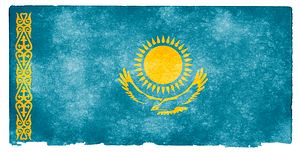As it stands now, a handful of people will contest the upcoming snap presidential election in Kazakhstan. But that number belies a widely-held belief (among analysts at least) that only acting President Kassym-Jomart Tokayev stands a chance of winning the June 9 poll.
As of April 28, the Kazakh Central Election Commission said that eight candidates had submitted the required materials to contest the election. Independent candidates are not allowed, given a 2017 constitutional referendum mandating that all nominees be put forth by an officially registered political party or a public association.
On April 29, one of the candidates — Talghat Erghaliev, nominated by the Union of Builders but also a member of the Ak Zhol party — withdrew at the behest of Ak Zhol, which had selected Daniya Yespayeva as its nominee. Yespayeva is the first woman to run for president in Kazakhstan. Ak Zhol, which holds seven seats (of 107 total) in the lower house of the Kazakh parliament, the Majilis, is often referred to as a pseudo-opposition party, putting forth little practical opposition to the government.
Among the other candidates are Sadybek Tugel, an editor nominated by the Eagles of the Great Steppe movement. Tugel is reportedly editor-in-chief of a popular science journal, first vice president of the Association of National Sports, and president of the Federation of National Equestrian Sports. Eurasianet’s Joanna Lillis called Tugel a “total unknown.” Also planning to contest the presidency is the chairman of the Territorial Association of West Kazakhstan Region’s Trade Unions, Amandeldy Taspikhov, nominated by the Federation of Trade Unions.
Then there’s Jambyl Akhmetbekov, a member of parliament for the only other party with Majlis representation, the Communist People’s Party (seven seats), and Toleutai Rakhimbekov, nominated by the Auyl (which means “village” in Kazakh) party. In the last parliamentary election, in 2016, Auyl barely crested 2 percent of the nationwide vote, not enough to get into parliament.
Amirjan Kosanov, an opposition figure and journalist, was nominated by the Destiny of the Nation movement.
This list of candidates is all but meaningless. As RFE/RL put it, all the candidates besides Tokayev, who has been nominated by Nur Otan — President Nursultan Nazarbayev’s party — “are either relatively unknown political figures nominated by pro-government parties and groups, or do not have enough time to campaign for the early poll.”
Tokayev, who assumed the presidency when Nazarbayev resigned on March 19, called earlier this month for the presidential election to be moved forward. The polls were originally scheduled for April 2020, when Nazarbayev’s fifth term was set to end. The call for a snap election dramatically impeded the opportunity for opposition forces to muster for a genuine run at the top office.
The Nationwide Social Democratic Party (ZhSDP), referred to by RFE/RL as “the only registered party in the country that positions itself as opposition to the government,” decided last week to boycott the election. In announcing its decision, ZhSDP said in a statement that participating the election would damage the party’s reputation. The party echoed comments made by analysts that the parties participating in the election are “puppets” in a play designed to look like a democratic process.
Let us never forget Mels Yelusizov, a registered candidate for the presidency in the 2011 election. He was asked after casting his own ballet who had voted for. “Nazarbayev,” he said. Nazarbayev may not be on the ballot this time around, but Tokayev is Nazarbayev’s choice. The others are Potemkin candidates, cardboard cutouts positioned on the stage to look like genuine actors in the democratic play.

































